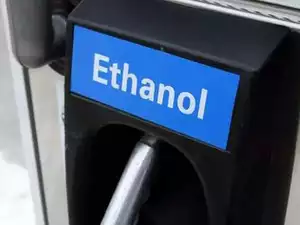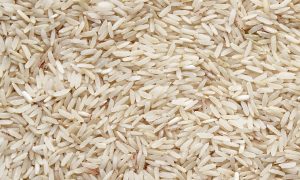Centre approves additional 2.8 million tonnes of FCI rice for ethanol production

India has approved an additional 2.8 million tonnes of FCI rice for ethanol production in 2024–25, raising the total to 5.2 million tonnes under the Ethanol Blended Petrol (EBP) programme. Despite food security concerns, the move supports the push toward 20% ethanol blending by 2025–26, potentially yielding 2.45 billion litres of ethanol from food grain-based sources.
The Union government has approved an additional 2.8 million tonnes of Food Corporation of India (FCI) rice for ethanol production in 2024-25, raising the total allocation to 5.2 million tonnes despite ongoing concerns over the diversion of food grains for fuel instead of food security.
The allocation applied to the ethanol supply year (ESY) 2024-25, which runs from December 2024 to October 2025, according to an official communication issued last week by the Union Ministry of Consumer Affairs, Food and Public Distribution. This allocation came on top of the 2.4 million tonnes sanctioned earlier.
Of the total amount of rice sanctioned under the Union government’s Ethanol Blended Petrol (EBP) programme, distilleries had already lifted approximately one million tonnes. The issue price of FCI rice for distilleries remained unchanged at Rs 22.50 per kilogramme.
The EBP scheme aims to reduce pollution and cut down on fossil fuel imports. But the move has renewed concerns about the impact of diverting staple food grains for industrial use. Rice, along with sugarcane and maize, forms the backbone of India’s food and livestock feed systems, yet all three are being used as feedstocks for ethanol.
These crops are considered first-generation (1G) biofuel sources, where ethanol is produced directly from food crops. By contrast, second-generation (2G) technologies use non-food biomass — such as agricultural residues, industrial waste and lignocellulosic material — and are generally seen as more sustainable.
The ministry stated the additional rice allocation followed an evaluation of buffer stock levels and potential ethanol yields from surplus FCI grain.
With a conversion rate of 470 litres per tonne, the total allocation could yield approximately 2.45 billion litres of ethanol.
The government has set a target of achieving 20 per cent ethanol blending in petrol by ESY 2025-26.
To Read more about Ethanol Industry & Bio Energy News, continue reading Agriinsite.com
Source : Down To Earth














